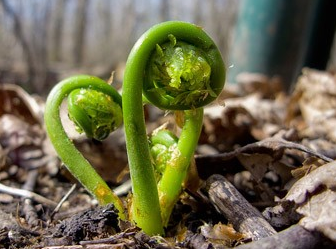As the Fiddlehead season approaches, New Brunswickers are reminded of the importance of properly washing and cooking fresh fiddleheads before eating them. Dr. Jennifer Russell, acting chief medical officer of health, said that food safety measures should always be taken before consuming fiddleheads.
Fiddleheads can be eaten safely, but can cause food poisoning if they have not been properly cleaned, prepared, cooked, or stored.
“People should never eat raw fiddleheads,” said Dr. Russell. “Always thoroughly wash and cook fiddleheads by boiling them for 15 minutes, or by steaming them for 10 to 12 minutes until tender, before eating them. The water used for boiling or steaming fiddleheads should also be discarded.”
While there have been cases of temporary illness from eating raw or undercooked fiddleheads in both Canada and the United States, there have been no reported cases of illness associated with eating fully cooked fiddleheads.
“Fresh fiddleheads are a delicacy that has long been enjoyed by New Brunswick residents and visitors during the short fiddlehead season in late spring,” said Dr. Russell. “It is important that appropriate food safety measures are taken so that we can thoroughly enjoy them.”
Due to their short growing season, many people freeze fiddleheads.
“Be sure to use appropriate cooking methods when preparing fiddleheads that have been frozen,” said Dr. Russell.
Preserving fiddleheads with a pressure canner is also not recommended, as safe process times have not been established for home-preserved fiddleheads.
More information about how to safely enjoy fiddleheads is available online, or by calling the local health protection branch office.
People who believe that they may have become ill as a result of eating fiddleheads should seek the advice of a health-care professional and contact their local health protection branch office.





0
Log In or Sign Up to add a comment.- 1
arrow-eseek-eNo items to displayFacebook Comments